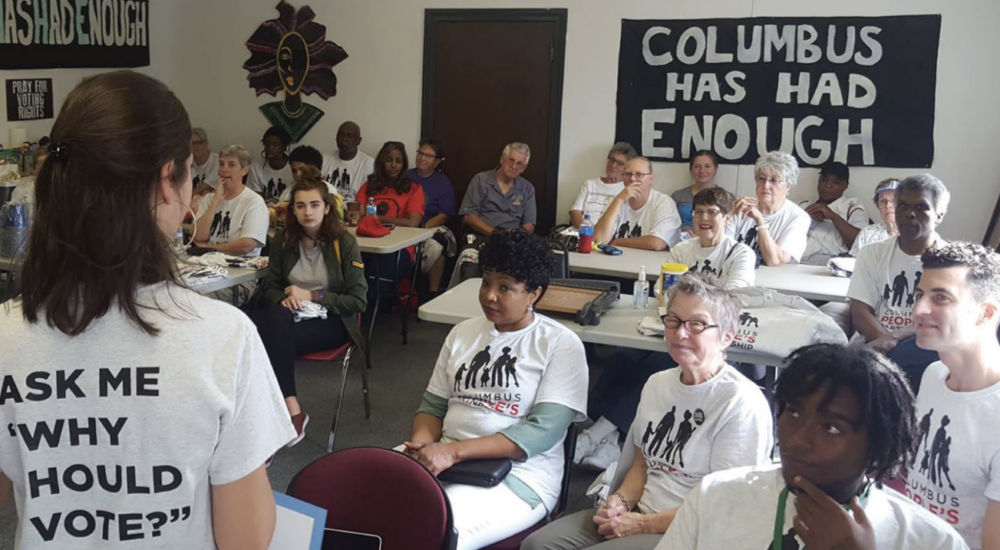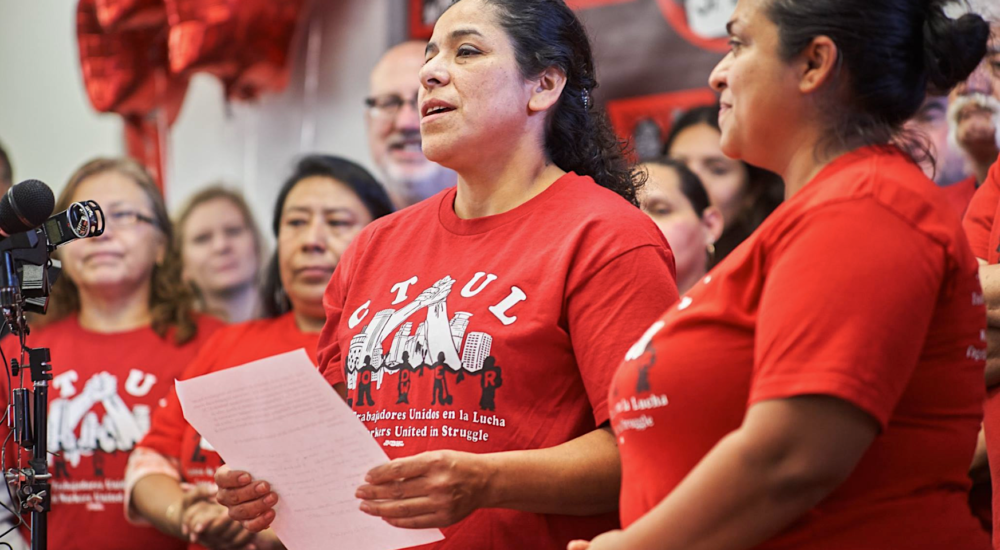Stopping a downward spiral of wages for retail janitors.
In 2010, Maricela Flores was working as a janitor cleaning Target retail stores in the Twin Cities. A mother of five, she worked seven days a week, earned $8 an hour, and received no health insurance or sick time. Her days were filled with struggle, uncertainty and unrelenting stress.
Like thousands of domestic workers, day laborers and farm workers in the U.S., Maricela, an immigrant from Mexico, had no worker protections. This left her susceptible to harassment, wage theft and unsafe working conditions. While desperately unhappy, she dared not object, for fear of being fired.
But, that all changed when she discovered CTUL (Centro de Trabajadores Unidos en la Lucha/Center of Workers United in Struggle).
Led by low-wage workers, CTUL helps inform and mobilize those without access to safe and dignified workplaces. Through CTUL, Maricela met scores of janitors also working under similar conditions. She learned of retailers outsourcing cleaning to private contractors, skirting the law and not paying full wages. And, she discovered unionized Target co-workers doing the same job as herself, earning almost twice as much – and receiving health benefits.
With CTUL as their touchstone, these workers became a strong and able group of activists who formed Campaign for Justice in Retail Cleaning. Together, they went door to door, store to store, asking workers to join their fight for fair work scheduling, health insurance, and higher wages.
“These were things,” said Maricela, “that would allow me to be more involved in the daily lives of my children and to have a better quality of life.” CTUL led marches, and sponsored a series of strikes, including a 12-day hunger strike. Although not part of a union herself, Maricela bravely walked off her job, too.
The group vastly increased their knowledge-base, built their confidence and fought hard. And, after six years, CTUL made history when Minneapolis-St. Paul became the first metropolitan area in the country to establish a retail-janitors union.
More than 500 workers cleaning large retail stores in the Twin Cities, joined the SEIU. The downward spiral of wages and poor working conditions in the Twin Cities came to a halt. Wages across the industry increased by 33%, and workers received their first raises in over a decade. CTUL also secured a Responsible Contractor’s Policy with Target Corporation, and Best Buy and Macy’s shortly followed suit.
It was a great triumph. “Retail janitorial work,” recalls CTUL’s director, Veronica Mendez Moore, “was an industry in crisis when workers began organizing. Workers faced poverty wages, dangerous working conditions, and rampant wage theft. Everyone considered the industry ‘un-organizable’ because of the fractured nature of the industry.” CTUL knew otherwise.
Support from funders like LIFT (Labor Interventions for the 21st Century) makes CTUL’s work sustainable. Valeria Treves, LIFT’s Executive Director, believes that worker organizing in this new economy needs to be reshaped. Traditionally, the work of philanthropy and labor have been siloed. But LIFT brings them together, connecting them with unions, worker centers and academics. To date, the Fund has awarded more than $1.5 million in grants to 38 worker center-union collaborations.
The Solidago foundation is a funder of CTUL, and was one of the earliest groups to fund LIFT, which has been housed at Solidago since 2014. Learn more at www.ctul.net and www.theliftfund.org
Photo courtesy of CTUL



